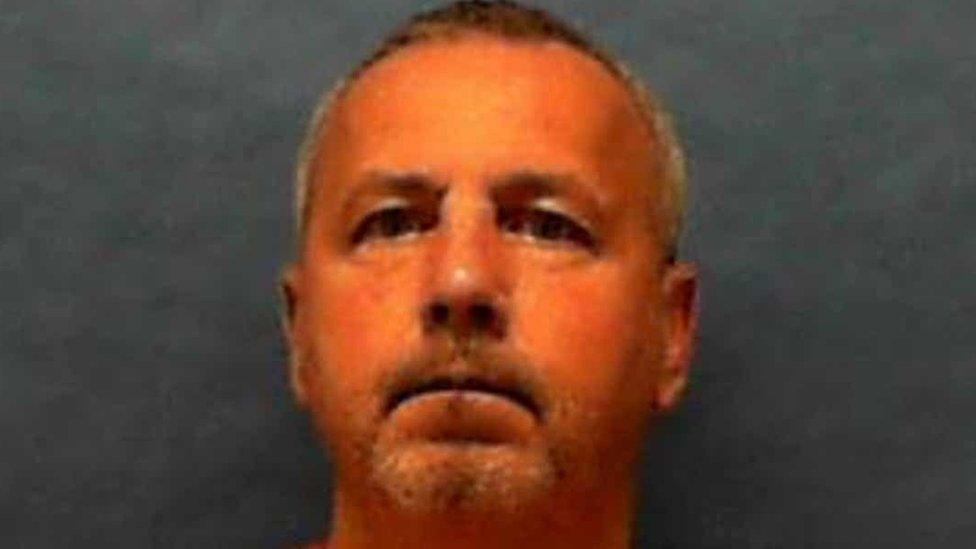Gary Ray Bowles: Florida executes killer who preyed on gay men
- Published

Bowles admitted to killing six men in 1994 from Florida to Maryland
A serial killer who preyed on gay men along the US east coast has been executed in Florida.
Gary Ray Bowles was executed by lethal injection after the Supreme Court rejected a last-ditch appeal.
Bowles admitted to killing six men in 1994 from Florida to Maryland but was only convicted of three deaths.
Sometimes dubbed the "I-95 killer", most of his victims were found near the interstate corridor that spans the entire eastern seaboard of the US.
Investigators say the 57-year-old West Virginia native left an abusive household as a child and worked as a prostitute to gay men for a number of years before beginning his killing spree.
After two jail sentences for grand theft, robbery, assault and rape, he moved to Daytona Beach in 1993.
During this time he continued to work as a prostitute, and was living with a girlfriend who left him after discovering his sex work.
He later told authorities that he blamed gay men for their break-up, and was angered to learn that his girlfriend had had an abortion, according to the Daytona Beach News-Journal.
After a manhunt, Bowles was arrested in Jacksonville while living under a false identify.
He was convicted of killing Walter Hinton, 47, and given a death penalty.
He also pleaded guilty and was given life sentences for the murders of John Hardy Roberts, 59, and Albert Alcie Morris, 37.
His lawyers had contended in their appeal that he was too intellectually disabled to be executed.
Bowles became the 99th inmate to be put to death in Florida since 1976 when the death penalty was restored by the Supreme Court, according to the Daytona Beach News-Journal.
He is the 13th person to be executed in the US so far this year, the Death Penalty Information Center says.
His execution came a day after Texas executed a man convicted of the murder of a 19-year-old student, which he maintained he did not commit.
- Published22 August 2019
- Published10 April 2019
- Published25 January